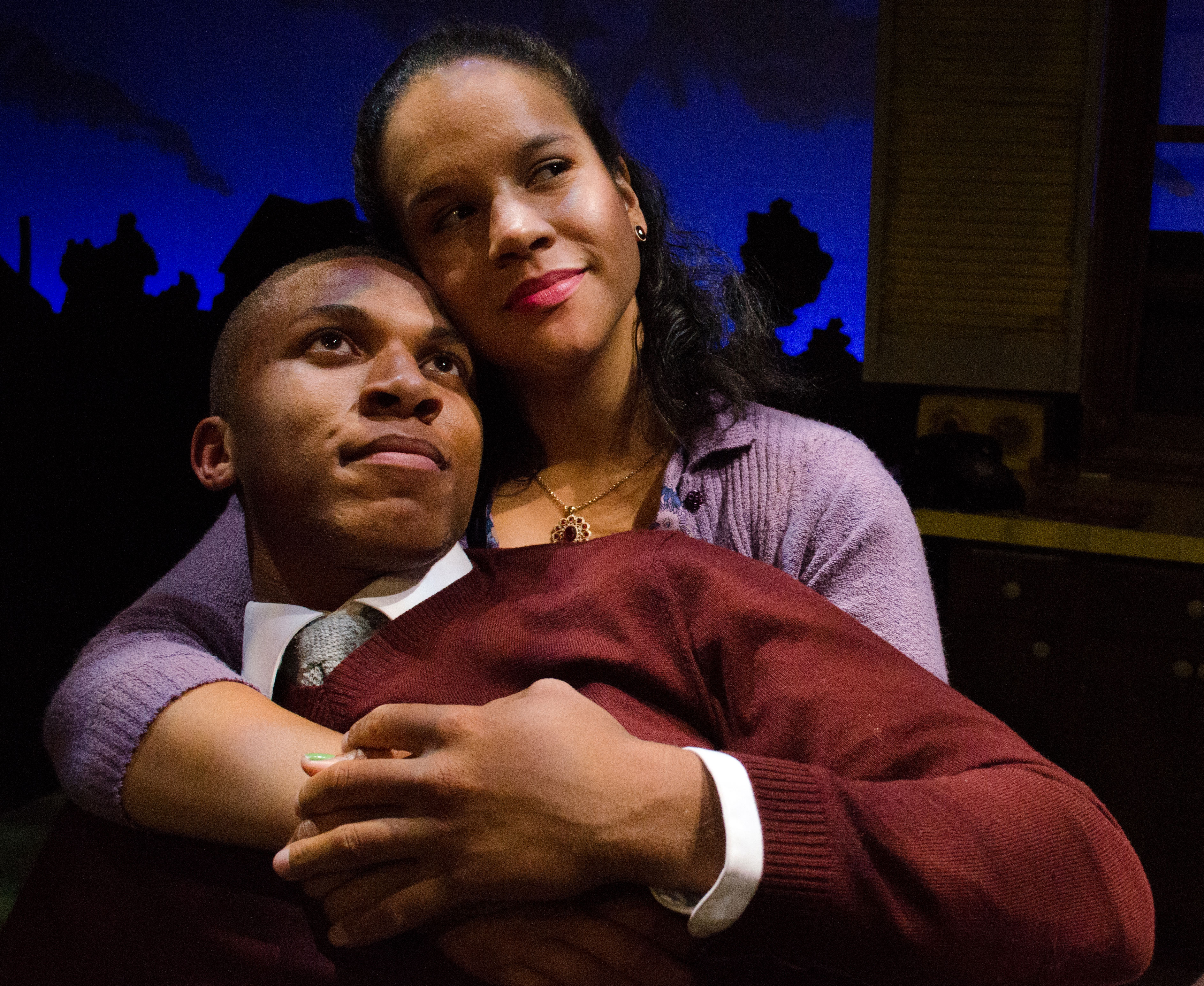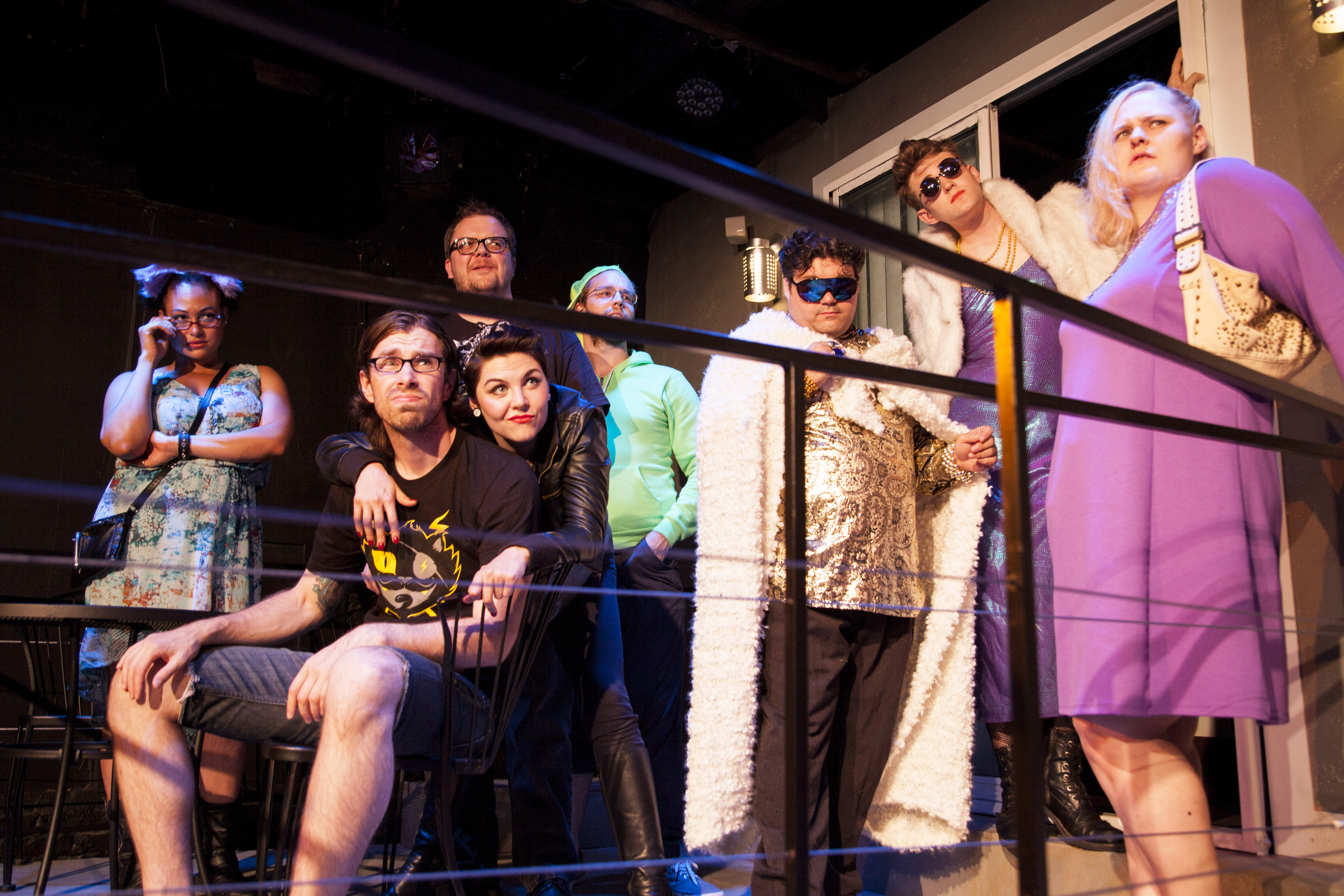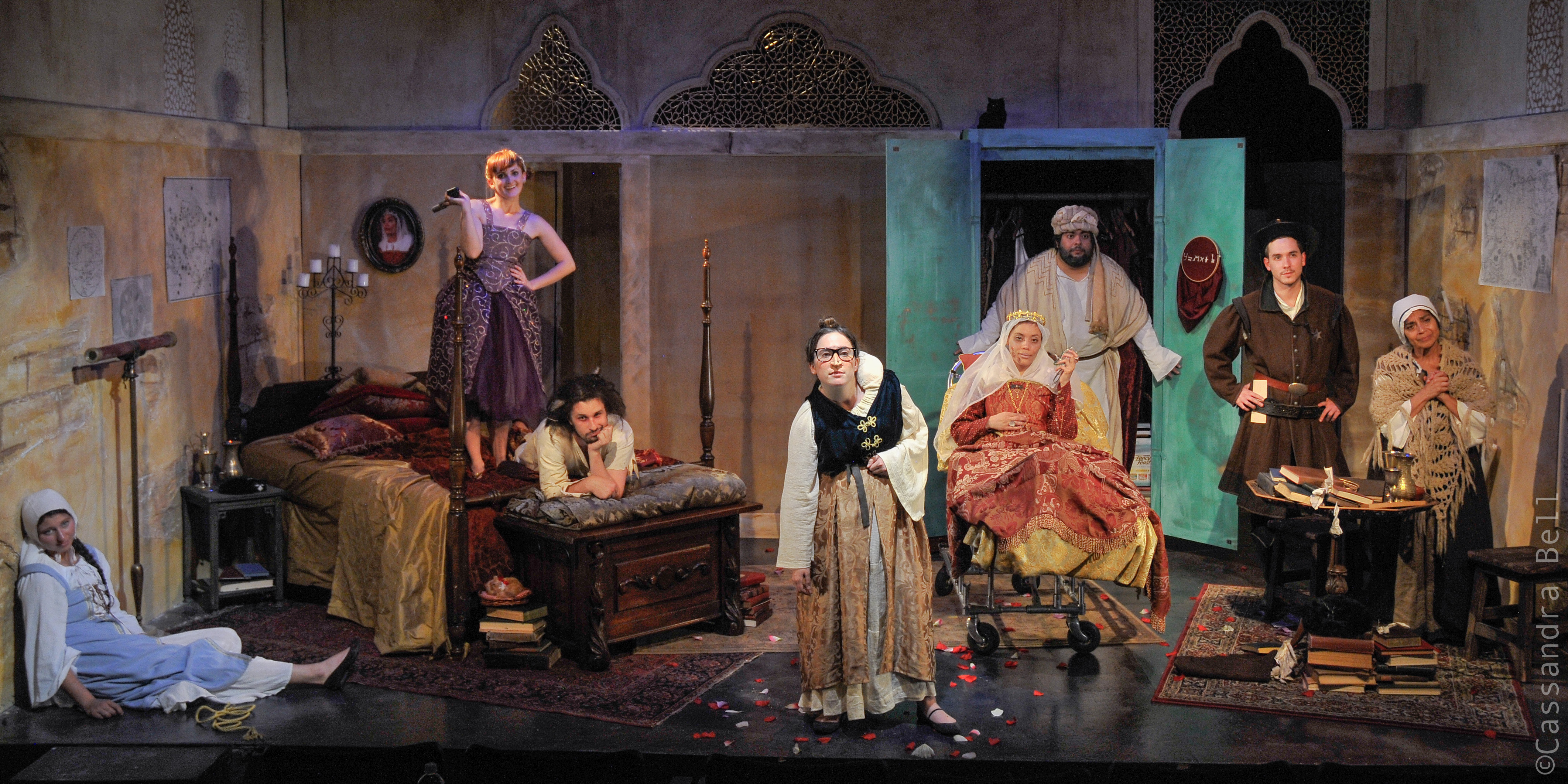In the annals of American dramaturgy, A Streetcar Named Desire isn’t just an 800-pound gorilla—it’s the whole monkey house. Family, betrayal, liquor, lunacy, and rape all intertwine in Williams’ game of loyalties. Is Stella a sister first, or wife? Is Blanche driving the Kowalskis apart so she won’t be alone in the world? And what of Stanley Kowalski, the archetypal Apeman, an unevolved lout who can’t see past the fleeting cravings of his appendages?
It’s the very durability of these themes that make Streetcar one of the theater’s greatest modern tragedies. Over the years, elements of the show have been hijacked, strip-searched, and turned inside out like a New Orleans bum mugged for his last nickel, but no writer has since reached the depths of pathos and poetry in Streetcar because none of them has ever envisioned characters as iconic and interdependent as Blanche, Stanley, and Stella. And while dialects come and go—much like the fabled streetcar—in this Intiman production, the heat rising from the stage is sustained and authentic.
As New Orleanians learn early on, the best local dishes begin with a few key ingredients. Intiman director Sheila Daniels doesn’t scrimp on the Crescent City atmospherics—here she’s commissioned a musical underscore that ambles from Fats Waller’s “Honeysuckle Rose” into the bluesy noodlings of pianist Jose J. Gonzales (who doubles as one of Stanley’s poker buddies). There’s also fine technical work, from Thomas Lynch’s intentionally ramshackle set (which perfectly captures a cross-sected tenement on Elysian Fields) to Frances Kenney’s smart eye for fashion and L.B. Morse’s lighting cues that visually echo the storm gathering among the principals. Even the ensemble players (particularly Tim True, who plays Blanche’s would-be conquest, Mitch) rise above the typical Williams caricatures of knuckle-draggers and their overfed and undereducated wives.
But the success of any Streetcar staging ultimately rests on the shoulders of the three performers trapped in the eye of this hurricane. Some consider Blanche one of the most challenging roles in the American canon, and they are right. But because Williams invests his own love of poetry in her (a neat counterpoint to the monosyllabic Stanley) and she’s given to flights of boozy imagination, she’s granted a lot of latitude. Under Daniels’ supervision, Angela Pierce underplays Blanche, and it’s entrancing to watch the operatics minimized to anchor this Blanche in reality. Her mood shifts are incremental and believable, and they offer up a Blanche who’s equal parts Frances Farmer and Grace Kelly gone to seed. All said, Pierce is captivating.
Fleshing out Stanley Kowalski is tougher, especially since Brando still looms as the heavyweight champ of the role. Anyone daring a less cro-magnon approach should be provided a wheelbarrow to lug his…um, credentials…onstage. There’s an aura of Jack Nicholson–esque menace (think The Last Detail) in Jonno Roberts’ performance, but he’s clearly a middleweight swinging past his reach, and while courageously attempted, his Stanley emerges more bully than brute.
Stella is the alchemical role that gives Streetcar its final twist in the gut. Her task is to convince an audience that Stanley’s sexual heat has her stuporous with passion, even though it’s never depicted. Williams himself would probably have been thrilled with Chelsey Rives’ performance, since she wears Stella like a model wears a negligee—you can tell she’s comfortable, but she looks amazing, too. Rives’ Stella is the newlywed best friend, the gullible gal Friday, and the cockeyed optimist we all wish we could be. Through her rose-tinted glasses, she’s every bit as self-deluded as sister Blanche, and when Stella discovers what her inaction has wrought, it rings down the curtain on a ghastly note of horror.
There’s a reason people still clamor for new productions of A Streetcar Named Desire, rather than rent the film on DVD or wait for a screen revival somewhere. These characters are some of the most potent ever created, and, as the Intiman cast and crew ably demonstrate, to see them stalk each other onstage is as riveting as theater gets.








